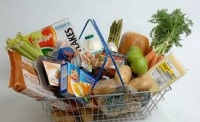Inflation Bites in To Welfare Claimants Incomes
Tuesday 25 April, 2017 Written by Phil Meekin, Wilson Field
According to latest figures from the Office for National Statistics (ONS), the cost of food, clothing, alcohol and tobacco have all risen over the course of the last month. A late Easter is attributed to a lack of inflation rate growth with transport costs falling, particularly for air fares.
The rise in price of everyday essentials, alongside a recent rise in many household bills, has put finances for many under pressure as the effects of Brexit on the pound are now starting to hit the economy in many areas.
It is thought that inflation will rise again in April which will see already strained household budgets squeezed even further with less cash to spend on non-essential goods and services. This is bad news for non-food retailers as a drop in disposable income means a potential fall in discretionary spending; reports are already coming in from retailers suggesting sales have slowed in the past few months.
General Secretary of the TUC, Frances O’Grady, commented on the latest inflation figures; “Rising prices and sluggish pay increases mean that real earnings growth has now ground to a halt. Without government action, another living standards crisis is on the cards.”
She went on to say; “We urgently need more investment in skills and infrastructure to build strong foundations for better paid jobs. And it’s time to scrap the pay restrictions hitting midwives, teachers and other public servants.”
As the fall in the pound has made the cost of importing goods and services to the UK more expensive, it was inevitable that increased costs for businesses would be passed on to consumers at some point.
Many businesses have opted for price rises however some, such as Doritos, Malteasers and Peperami, have opted for shrinkflation by making their products smaller in order to keep the price steady.
With inflation rising from 0.3% this time last year to above the Bank of England’s 2% target, it is now starting to have a significant impact. Just a day after the inflation rate announcement, figures were revealed showing that real average earnings for the first three months of 2017 have fallen.
Although pay growth (excluding bonuses) may have grown to 2.2% in the last three months, it is 0.1% below the current inflation rate showing an overall drop in take home pay. In February alone, pay growth (excluding bonuses) was just 1.9%, nearly half a percent (0.4%) lower than inflation.
Stephen Clarke from the Resolution Foundation, who commented on the gap between pay and inflation, said; “Britain’s brief pay recovery has come to an end. Forty per cent of the workforce are experiencing shrinking pay packets… Many more will join them in the coming months as inflation continues to rise… While the National Living Wage is protecting the lowest earners from this squeeze, boosting wages across the rest of the economy is the big living standards challenge of this parliament.”
The last time pay growth was below inflation was in the summer of 2014 when inflation was 1.5% and wages were only growing by 0.9%. We may not be at those levels yet but many are worried that this slight drop over the last quarter could signal the hard times ahead that are being predicted.
Some economists think inflation will reach 3% by the end of this year which without any significant growth in wages will see households up and down the country put under significant strain financially.
Despite this, the indication from the Bank of England is that they will keep interest rates steady at a record low of 0.25%. The Bank’s governor, Mark Carney, and other policymakers seem happy at the moment to tolerate an inflation rate above its target in the hope this will support growth and safeguard jobs due to the low cost of borrowing.
These latest financial figures are likely to put a strain on the government with a spokesperson from the Treasury commenting to reiterate that they are working to help those struggling; “We are building an economy that works for everyone and helping families with the cost of living by cutting income taxes for 31 million people, freezing fuel duty and increasing the National Living Wage to £7.50 per hour.”
As we edge closer to Brexit, it remains to be seen how this will effect inflation and incomes and if the Bank of England choose to raise interest rates or stick to their guns with the record low rate.
Article Courtesy Phil Meekin, Wilson Field
Leave a comment
Make sure you enter all the required information, indicated by an asterisk (*). HTML code is not allowed.
Join
FREE
Here










